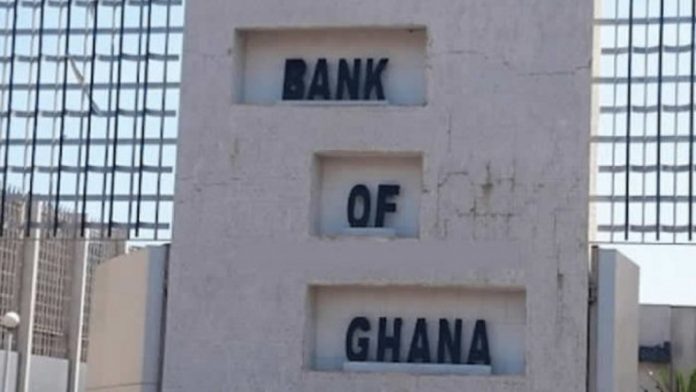The Bank of Ghana has issued a new directive to all banks and specialized institutions in taking deposits and withdrawal on behalf of an account holder. The directive requires the full details of a person making a deposit into or withdrawal from an account on behalf of the account holder.
The Central Bank referring to Section (23) of the money laundering Act 2008, Act 749 as mended by the Bank of Ghana stated that, all third parties making deposits into or withdrawal from an account not belonging to them shall provide the name and address a verifiable identification card and the telephone number of the third party to the bank or any specialized deposit taking institution.
However, concerns have even raised that the directive will deepen the already existing woes of traditional banking system as mobile money is now dominating in deposit taking.
Mr. Nana Otuo Acheampong, a banking consultant disagreed with the concerns citing that even in the UK one needs to provide these verifiable items before doing a bank transactions on behalf of some one. He also stated that these required items are even common and can easily be provided.
“The three items they are asking for everybody literally have it in the sense that your name, you have a name, the second is your contact details and phone number and the last an ID card. When it comes to mobile money your details are already in the other jurisdiction. In the U.K you cannot put money into anybody’s account if you are not able to get this verifiable items. Yes if you don’t need that you can transfer money through mobile money but then that one already you are supposed to submit you’re your details before they open an account for you. So I think it’s something we have to live with”.
Nana Otuo also explained that checks books are gradually fading out of the system as mobile money is dominating.
“If you read the recent financial stability report on banking fraud, you can see that the highest number of fraud is check cloning. Check cloning is where your check is literally cloned and they are used to transact business. So if check cloning is the highest fraudulent exercise then I don’t see how the argument holds. It is as risky as using other digital forms. We will continue to be using cash but if the objective is to be achieved, they will want to see a system where we make all payments digitally rather than going to the to withdraw physical cash”.
Sharing same idea is Courage kinsley Martey, who is a senior research analyst at data Bank, saying it will help to improve monitoring policy and to trace any transaction made on the platform.
“Yeah it is more excited the discouraged because with increasing use of the digital payment system then you will notice that a number of things will happen from policy perspective as well as business operation position For instance the bank that will have to constantly print check books, their operation exposes will have to go down and that is why some banks if you are withdrawing money and during bank transfer it is free. But if you have to do check you have to make some payment to get the check book because it impose operative cost on the bank every now and then. From policy perspective, then the central bank is able to know the amount of money within the banking system and then reducing cash or circulating and cash outside the banking system to improve monetary policy as well. Then again the capability of those behind transaction as well is also very important because then you know that every digital transactions happening has the name behind the digital platform and we should be able to trace some of these contacts”.
Mr. Martey is also calling for measures for tightening security in the increasing rate of cyber. He explained that as we are getting to the large dispensation of digital payment system regime we must be very cautious and about cyber crime and thus fiscal authorities must play their roles well in ensuring that any unscrupulous persons within the system is track down.
“I will rather say we should be cautious than worried because we are now getting into large dispensation of digital payment system and so how robust are our laws, our monitoring frame works, the regulatory frameworks? Are we going to need a catch up, do we have sufficient regime to track down every unscrupulous persons within the system? So this is the time we would have to be cautious than worried. Not too worried because the benefits for me over weigh the cost if we are able to increase the surveillance regime. In any case the government told us that part of reasons why he increased the communication service tax from 6% to 9% is to track down and improve this system. And so we also have to hope that the fiscal authorities play their part in ensuring that any potential pitfall we navigate them”.











